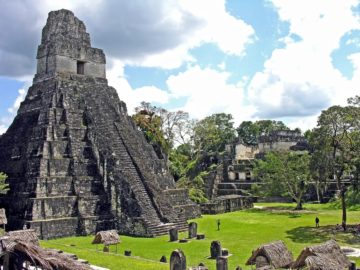Ugo Bardi in Tablet:
 During the first century of our era, the Roman philosopher Lucius Annaeus Seneca wrote to his friend Lucilius that life would be much happier if things would only decline as slowly as they grow. Unfortunately, as Seneca noted, “increases are of sluggish growth but the way to ruin is rapid.” We may call this universal rule the Seneca effect. Seneca’s idea that “ruin is rapid” touches something deep in our minds. Ruin, which we may also call “collapse,” is a feature of our world. We experience it with our health, our job, our family, our investments. We know that when ruin comes, it is unpredictable, rapid, destructive, and spectacular. And it seems to be impossible to stop until everything that can be destroyed is destroyed.
During the first century of our era, the Roman philosopher Lucius Annaeus Seneca wrote to his friend Lucilius that life would be much happier if things would only decline as slowly as they grow. Unfortunately, as Seneca noted, “increases are of sluggish growth but the way to ruin is rapid.” We may call this universal rule the Seneca effect. Seneca’s idea that “ruin is rapid” touches something deep in our minds. Ruin, which we may also call “collapse,” is a feature of our world. We experience it with our health, our job, our family, our investments. We know that when ruin comes, it is unpredictable, rapid, destructive, and spectacular. And it seems to be impossible to stop until everything that can be destroyed is destroyed.
The same is true of civilizations. Not one in history has lasted forever: Why should ours be an exception? Surely you’ve heard of the climatic “tipping points,” which mark, for example, the start of the collapse of Earth’s climate system. The result in this case might be to propel us to a different planet where it is not clear that humankind could survive. It is hard to imagine a more complete kind of ruin. So, can we avoid collapse, or at least reduce its damage? That generates another question: What causes collapse in the first place? At the time of Seneca, people were happy just to note that collapses do, in fact, occur. But today we have robust scientific models called “complex systems.”
More here.
